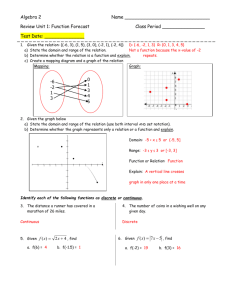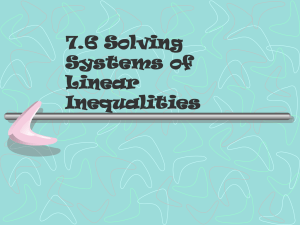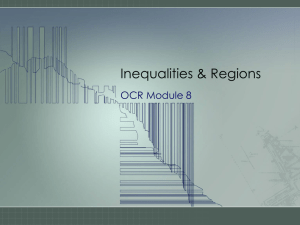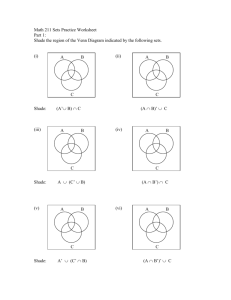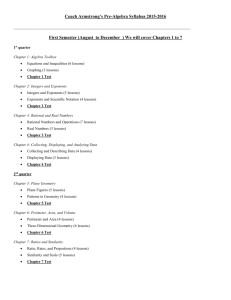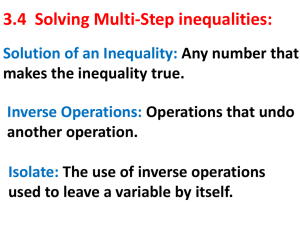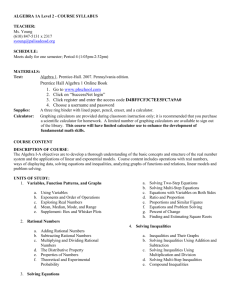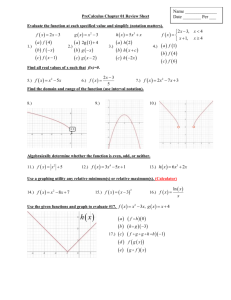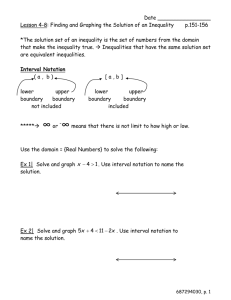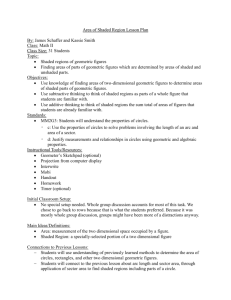Algebra I Chapter 3 Section 6: Quarter 2 Handout #2 Name Date
advertisement
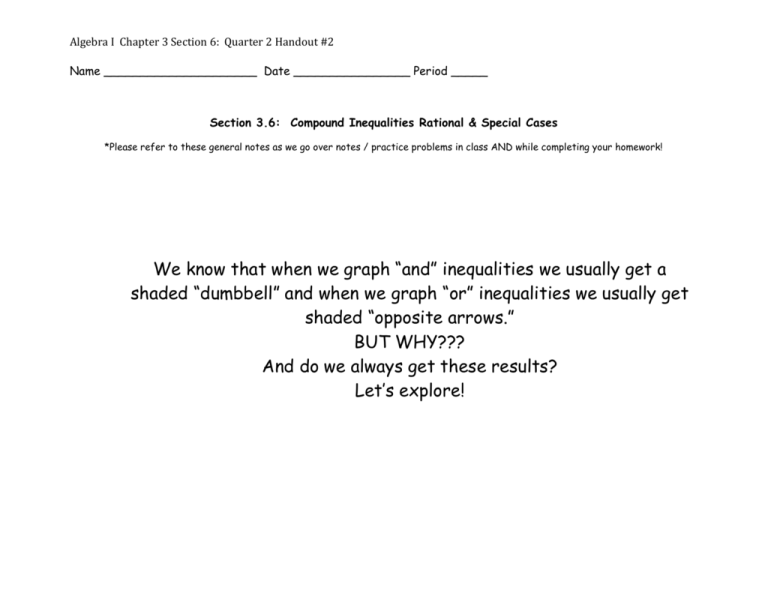
Algebra I Chapter 3 Section 6: Quarter 2 Handout #2 Name _____________________ Date ________________ Period _____ Section 3.6: Compound Inequalities Rational & Special Cases *Please refer to these general notes as we go over notes / practice problems in class AND while completing your homework! We know that when we graph “and” inequalities we usually get a shaded “dumbbell” and when we graph “or” inequalities we usually get shaded “opposite arrows.” BUT WHY??? And do we always get these results? Let’s explore! Algebra I Chapter 3 Section 6: Quarter 2 Handout #2 When graphing two inequalities at once what you are really doing is graphing each separately and then o Look for the overlapping portion of the graphs for “and” statements (open circles take precedence since must be included in both to be included at all!) Ex. Graph x ≤ 9 AND x > -1 on a number line, then write the solution in interval notation Ex. Graph m ≥ 2 AND m > 5 on a number line, then write the solution in interval notation (Hint: you will get a shaded arrow!) Algebra I Chapter 3 Section 6: Quarter 2 Handout #2 o Consider ALL values present for “or” statements (closed circles take precedence since only have to be considered once to count!) Ex. Graph y < -3 OR y ≥ 1, then write your solution in interval notation Ex. Graph h > 1 OR h ≥ 3, then write your solution in interval notation (Hint: for this one your final answer will only have one arrow shaded!) Algebra I Chapter 3 Section 6: Quarter 2 Handout #2 SPECIAL CASES (ALL SOLUTIONS OR NO SOLUTION) o AND Sometimes there is no overlap between the individually graphed inequalities so nothing gets shaded on the final number line; this is a case of “no solution” Ex. Graph j > 1 AND j < -1 o OR Sometimes when the two individually graphed inequalities are put together they cover, or span, the entire number line; this is the case of “all solutions” Ex. Graph w ≤ 2 OR w > -3, then write your solution in interval notation
